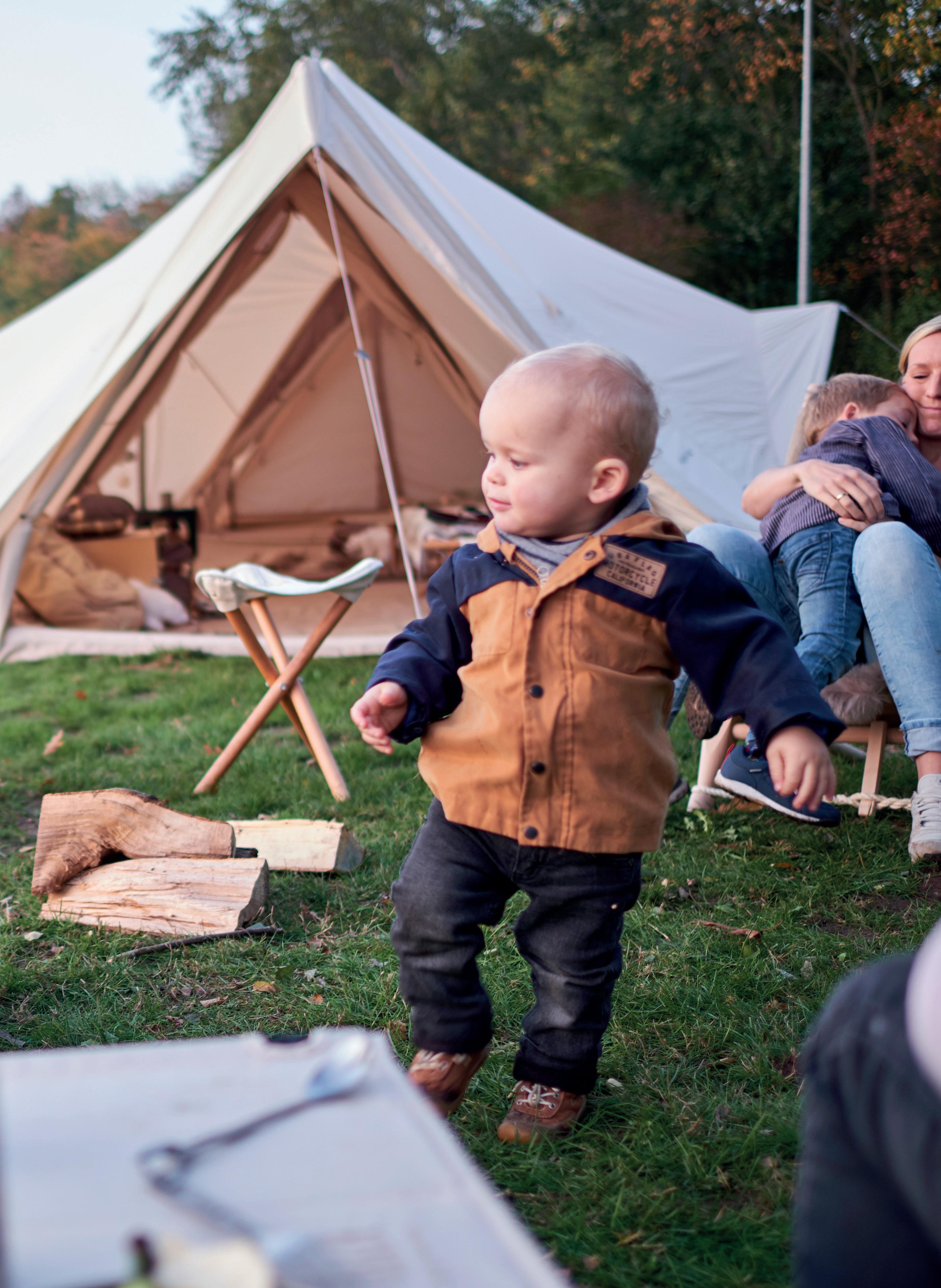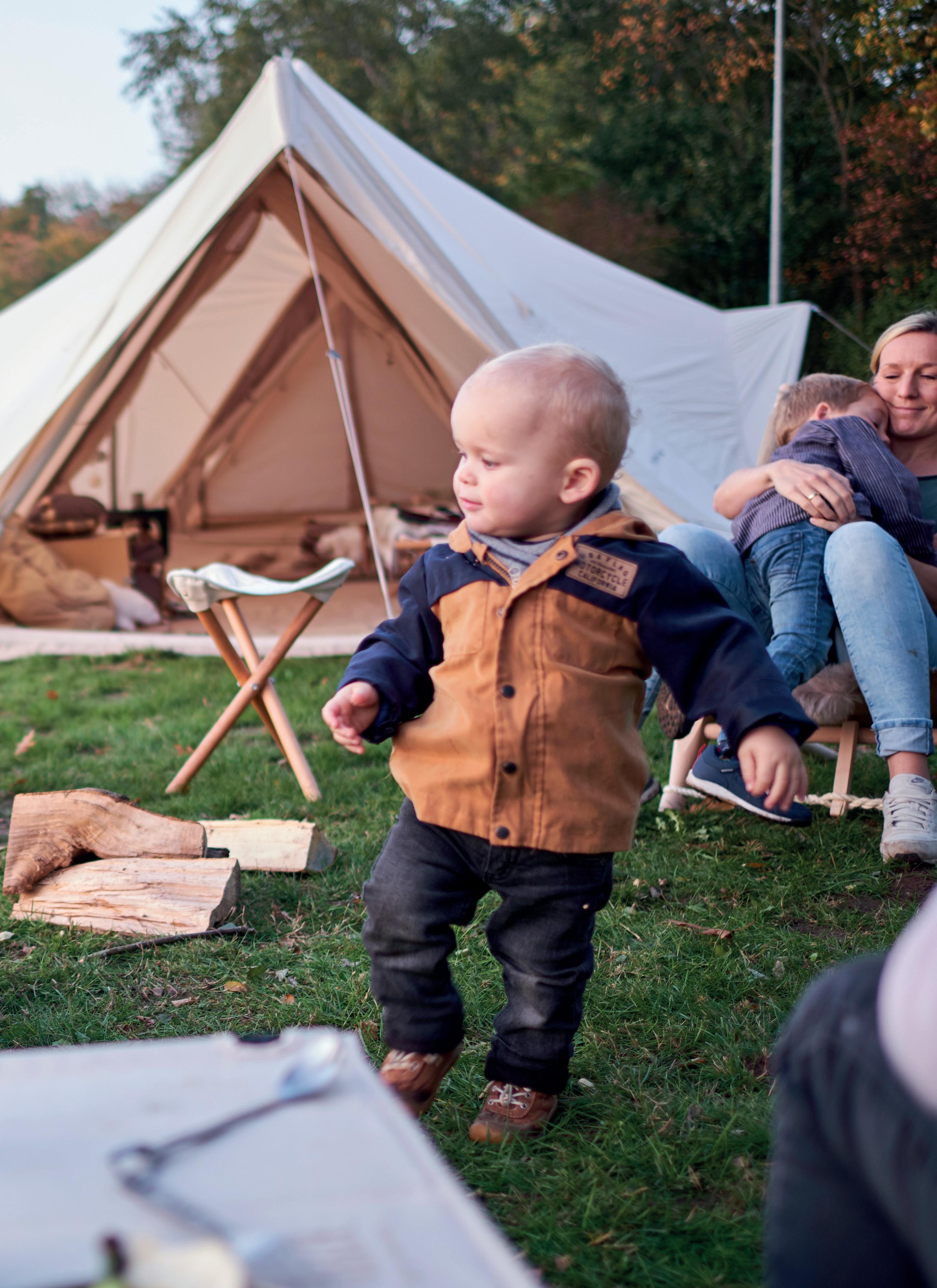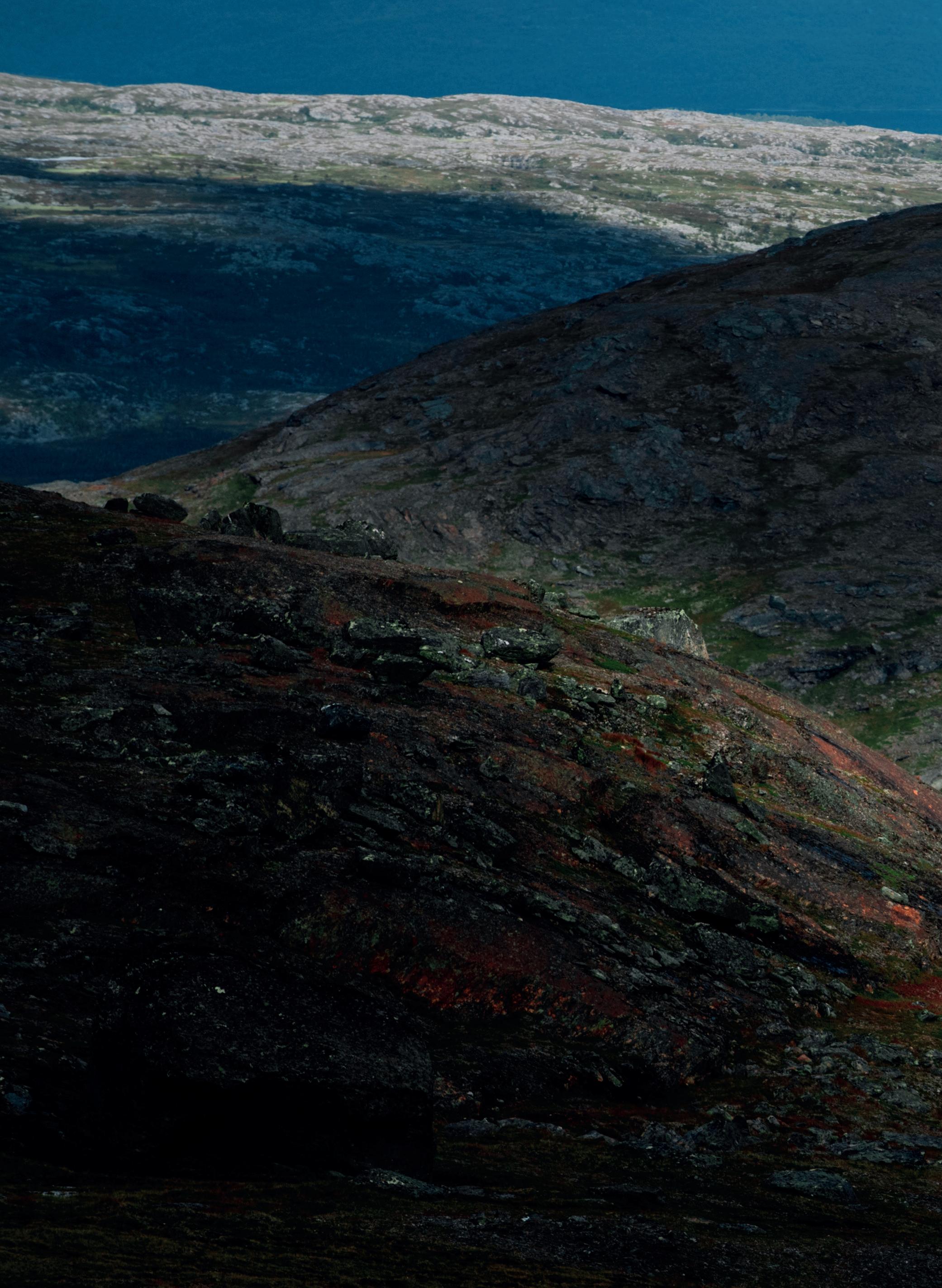
5 minute read
ALuxuriousWeekendInNature
ALUXURIOUS WEEKENDINNATURE
Text: Anna Kernell / Photo: Nordisk – Tom Novak
Advertisement
It's time to rethink the weekend getaway. Forget crowded subways and wandering the streets to find trendy restaurants; instead, get out into nature and relax – for real.
Do you need a change of scene this summer? Do you want to go on an adventure but still take some creature comforts with you? Camping doesn't have to be a test of endurance – find a scenic basecamp and take day trips on foot, by bike or by kayak. This way, you don't have to lug around heavy backpacks and equipment all day long and can enjoy a bit of luxury. Imagine coming 'home' to a cold beer and a comfortable chair, with atmospheric lighting and relaxing music. When it's time for sleep, a comfortable bed awaits – maybe that's a sturdy camp-bed, a deluxe air mattress or a pleasantly-swaying hammock.
Does that sound good to you? Then let's look at how to set up a successful camp!
Location,location,location
Of course, which location is best depends on whether you plan to set up tents, sleep in a hammock or out in the open under the starry sky. You'll then want flat ground, free from rocks and roots, or in the case of a hammock, wellpositioned trees. No matter where you choose to sleep, make sure you have a stream close by for freshwater. If you spend the night near a lake, it's wise to set up camp a few metres back from the water where the air's slightly warmer. Study the sun: when it rises and sets. If you set up your tent in a place that catches the morning sun, you'll be sure to wake up in a polyester sauna. And what about the wind? A little wind can be good to keep mosquitoes and gnats away, but if the spot is too exposed, you might get too cold and need to look for shelter. Being able to gather around a campfire when darkness falls is lovely, but then you need to make sure there's a safe place to build a fire. And for God's sake, remember to avoid anthills!
First-class food
If you bring dried or canned foodstuffs, you won't need to worry about keeping them cool. Besides, you can easily rustle up a delicious feast from dried meat, dried fruit, crisps, nuts, oatmeal, rice, pasta, and some canned food.
However, there are few tricks for keeping perishable food and liquids cold: either make it easy for yourself and invest in a good cool box that can keep stuff cold for several days, or put it in a dry bag, seal it tightly and lower it into the nearest lake or stream.
A deliciously cold beverage
It doesn't get much better than rounding off an exciting day of adventure with a refreshing cold drink. A classic method for keeping your beverages cool is to let a lake or stream do the hard work. But in the height of summer, lakes can be too warm or shallow to offer sufficient cooling. Instead, wrap the beer or soda can in a wet piece of cloth (towel, t-shirt or anything else you have to hand) and put it in a windy place in the shade to dry. The water evaporates in the wind, drawing the heat from the drink and cooling it down.
Everyone's right
’Thanks to Sweden’s freedom to roam laws, you can spend the night on someone else’s land if you only have a couple of tents and stay a night or two. Just make sure not to pitch tents near residential buildings, lot boundaries or arable land. If you intend to stay several nights or are part of a larger group, you’ll need to ask the landowner for permission, as the risk of land damage and sanitary nuisances is greater.
In some areas, such as national parks and nature reserves, special rules apply. Find out what’s allowed before you visit a new place.
Without a trace
The freedom to roam laws also bring certain responsibilities. Yes, we can roam free in nature, but must also work together to look after it. Always remember to take your rubbish with you. Take another look around for other people's trash and take it with you if you find any.
So fresh and so clean
A nearby stream can provide drinking water and water for cooking, doing the dishes and personal hygiene. But it's important not to do everything in one place; otherwise, you can contaminate your drinking water! Source water for drinking and cooking at the top of the stream. Further downstream, you can wash your dishes, and below that, take care of personal hygiene and wash your clothes if needed.
If you set up camp by a lake, don't do the dishes or wash right on the shore in stagnant water. Instead, fetch water and carry it away from the water's edge.
A small bottle of hand sanitiser is always practical: this way, you can stay clean regardless of water quality. Bring soap and detergent that are biodegradable for the least possible impact on nature.
Sh*t smart
Out in nature, toilet paper alone isn't going to suffice when nature calls. A camping shovel or trowel for digging a pit is convenient. Small plastic bags or dog poop bags are suitable for collecting used toilet paper before you can throw it away in the next bin. If you have resealable freezer bags, use them to store unused toilet paper and keep it dry. If you remove the cardboard cylinder, the roll takes up less space in your bag, and you can pull the paper out from the middle. Then, follow these simple steps:
1. Walk away from your camp, at least 50 metres, preferably further. 2. Look for easy-to-dig soil without roots and stones. 3. Dig your hole by a tree if you want something to hold on to, or by a rock or log if you're going to sit down. 4. Cut a 'lid' with the shovel. 5. Dig a hole a few decimetres deep. 6. When you're done, fill in the hole, put the lid on and stamp on it a few times.
What if it's not possible to dig a pit? Try to hide the poo under a rock or a piece of moss. The most important thing is to make sure that it quickly becomes 'manure' and no one accidentally steps in it.

Thatextrabitofluxury

• Portable/Bluetooth speaker, preferably waterproof • 'Mood' lighting: battery- or solar-powered string lights, cosy lanterns and tent lamps • Tent bed, a hammock for two or a generously thick, luxurious air mattress • Comfortable slippers for hanging out in the evening • Blankets for extra warmth • Camping chairs to relax in • Muurikka for open-fire barbecue parties











